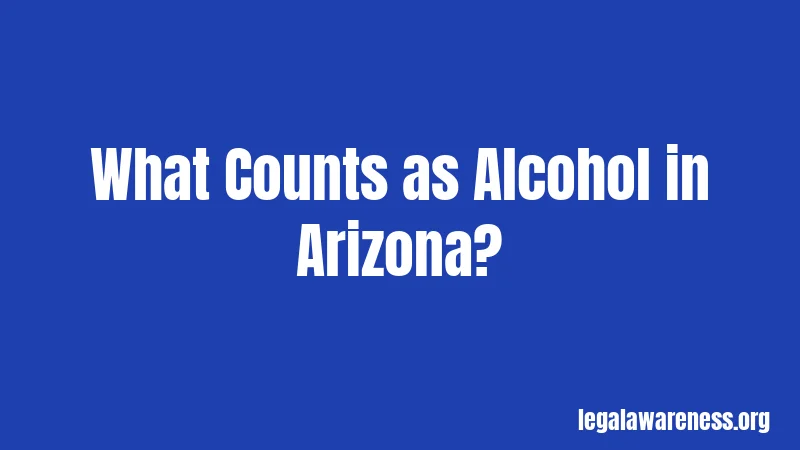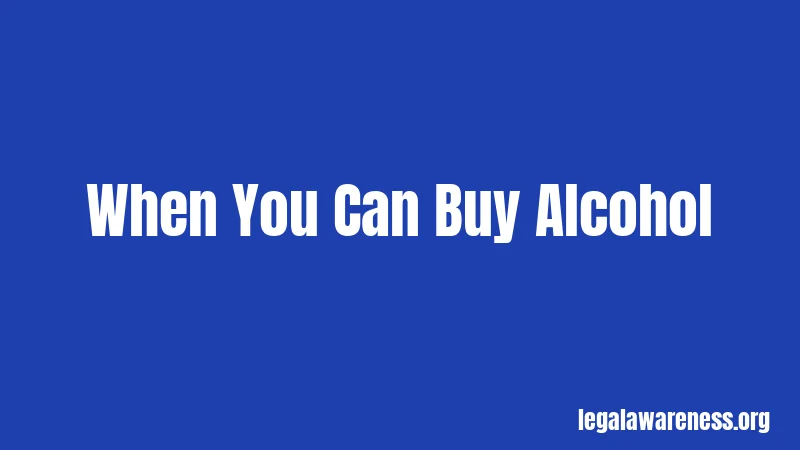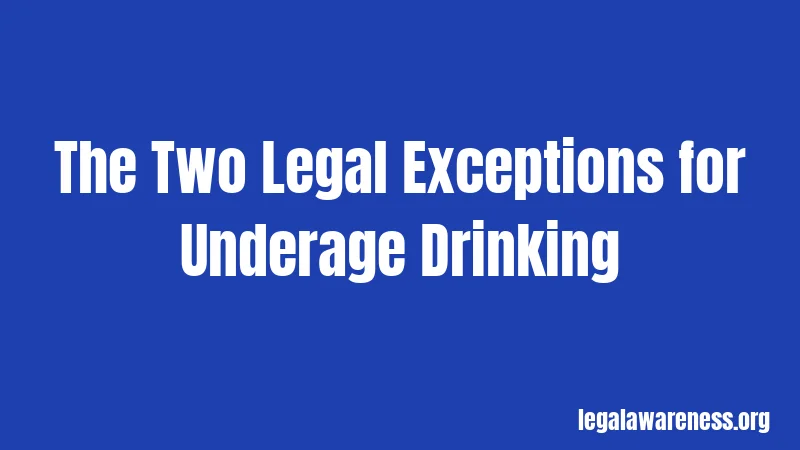Alcohol Laws in Arizona (2026): Rules That Might Surprise You
Most people think they know the basics about alcohol laws. You can’t drink and drive. Don’t serve minors. Pretty straightforward, right?
But Arizona’s alcohol laws go way deeper than that. Some of these rules might actually surprise you. Let’s break down exactly what you need to know.
What Counts as Alcohol in Arizona?

Here’s the deal. Arizona law defines alcohol as “spirituous liquor.” Basically, that’s any drink with more than 0.5% alcohol by volume.
This includes beer, wine, hard liquor, and mixed drinks. Even some malt beverages count. If it can get you buzzed, Arizona regulates it.
The state calls drinks with alcohol “spirituous liquor.” Sounds fancy, but it just means alcoholic beverages.
Basic Drinking Age Rules
You need to be 21 to buy, possess, or drink alcohol in Arizona. No exceptions for marriage status. No exceptions for military service. No exceptions if you could legally drink in another country.
Sound strict? It is.
Arizona takes this seriously. The legal drinking age is 21, period. Native American reservations in Arizona follow the same rule.
Wondering if there are any exceptions at all? There are exactly two. We’ll get to those in a minute.
When You Can Buy Alcohol

Stores can sell alcohol between 6:00 a.m. and 2:00 a.m. There’s one catch though. On Sundays, sales don’t start until 10:00 a.m.
Bars and restaurants follow the same hours. They stop serving at 2:00 a.m. every day.
Hold on, this part is important. Between 2:00 a.m. and 6:00 a.m., you can’t buy alcohol anywhere in Arizona. Not from stores. Not from bars. Nowhere.
Working With Alcohol When You’re Under 21
Okay, pause. Read this carefully.
You can work in places that serve alcohol before you turn 21. But the rules depend on your age and where you work.
At 18 years old, you can serve alcohol in restaurants and bars. You can also work behind the bar. You just can’t drink it yourself.
At 16 years old, you can handle packaged alcohol in stores. But you need a supervisor over 19 watching you.
Makes sense, right? The law lets you earn money but keeps you from drinking.
The Two Legal Exceptions for Underage Drinking

Remember those two exceptions we mentioned? Here they are.
Religious ceremonies. If alcohol is part of a genuine religious practice, minors can consume it. Think communion wine in Christian services.
At home with parents. Parents or legal guardians can allow their kids to drink at home. This only works in private homes though. It doesn’t apply in restaurants, bars, or public places.
That’s it. Those are the only legal ways someone under 21 can drink in Arizona.
Penalties for Underage Drinking
Trust me, these penalties hit hard.
Minor in possession or consumption is a Class 2 misdemeanor. Here’s what that means.
You could face up to four months in jail. The fine can reach $750, plus extra fees. You might get probation for up to two years.
Your driver’s license? The court can suspend it even if you weren’t driving. First-time offenders usually get probation, community service, and mandatory alcohol classes instead of jail time.
But wait, it gets more serious. If you’re under 21 and driving with any alcohol in your system, you face an underage DUI charge. Arizona has zero tolerance. Any BAC above 0.0% counts.
For a first underage DUI, you’re looking at 24 hours to 10 days in jail minimum. Fines start around $1,600. Your license gets suspended for 90 to 360 days.
Pretty straightforward consequences.
Open Container Laws
Here’s where many people get it wrong.
You cannot have an open container of alcohol in your car’s passenger area. Period. This applies whether you’re the driver or a passenger.
What’s an open container? Any bottle, can, or container where the seal is broken. Even if it’s mostly full. Even if nobody’s drinking from it.
Let me break it down. If a cop pulls you over and finds an open beer can in your cup holder, you’re getting charged. It doesn’t matter if you weren’t drinking it.
The penalty? Up to $750 in fines and four months in jail. This is a Class 2 misdemeanor. It goes on your criminal record.
Not sure what counts as the passenger area? It’s anywhere the driver or passengers can reach. The front seats. The back seats. Between the seats.
Where You CAN Keep Open Containers
Okay, so where can you put an open container without breaking the law?
In your trunk. Behind the last row of seats if your vehicle doesn’t have a trunk. In a locked glove compartment.
Basically, anywhere that’s not easily accessible while driving.
Open Container Exceptions
There are some exceptions to Arizona’s open container law. Passengers in these vehicles can legally have open alcohol:
Taxis and limousines. Tour buses. Uber and Lyft rides. Motor homes (but only in the living area, not where the driver sits).
So if you’re taking an Uber, your passenger can technically have a drink. The driver obviously cannot.
Providing Alcohol to Minors
Adults who give alcohol to people under 21 face serious consequences.
Contributing to the delinquency of a minor is a Class 1 misdemeanor. Fines and jail time are both possible. If the minor then drives drunk and causes an accident, you could face civil lawsuits too.
Honestly, this is one area where Arizona doesn’t mess around.
Social Host Laws
You’re not alone if you didn’t know about this one.
If you’re 18 or older and you host a gathering where minors are drinking, you can be charged. This applies even if you didn’t provide the alcohol yourself.
The law says you’re guilty if you knew or should have known underage people were drinking on your property. This includes your home, your yard, anywhere under your control.
Parents have been charged under social host laws even when they were out of town. Landlords have faced penalties when tenants threw parties with underage drinking.
Sound complicated? It’s actually pretty simple. Don’t let minors drink at places you control.
DUI Laws in Arizona
Arizona’s DUI laws are among the strictest in the country.
The legal BAC limit is 0.08% for most drivers. For commercial drivers, it drops to 0.04%. For anyone under 21, it’s 0.0%.
Yep, that’s zero tolerance.
You can also be charged with DUI if you’re “impaired to the slightest degree.” That means even if your BAC is under 0.08%, police can still arrest you if they think alcohol affected your driving.
First-Time DUI Penalties
For your first DUI, here’s what you’re facing:
10 days minimum in jail (though 9 days can sometimes be suspended). Fines and fees totaling at least $1,600. License suspension for 90 days minimum. Mandatory alcohol screening and classes. Ignition interlock device for at least 6 months.
These are the minimums. Judges can add more penalties.
Extreme DUI
Wait, it gets worse.
If your BAC is 0.15% or higher, it’s an Extreme DUI. The penalties jump significantly:
30 days minimum in jail. Fines up to $3,000. One-year license suspension. Ignition interlock device for 12 months.
Aggravated DUI
This one’s a felony. You get charged with Aggravated DUI if:
You’re driving on a suspended license. You get a third DUI within 7 years. You’re driving with a minor under 15 in the car. You refuse to submit to a breathalyzer or blood test.
Felony consequences include at least 4 months in prison. Fines starting at $4,000. License revocation for one year. 24-month ignition interlock requirement after you get your license back.
Totally serious stuff.
Refusing a Breathalyzer
Arizona has an “implied consent” law. When you sign for a driver’s license, you automatically agree to submit to alcohol testing if police ask.
If you refuse, your license gets suspended automatically. First refusal? 12 months. Second refusal? 24 months.
Plus, prosecutors can use your refusal as evidence against you in court.
Bars and Restaurants: Special Rules
Business owners have their own set of rules to follow.
You can’t serve obviously intoxicated people. Servers and bartenders need to cut people off when they show signs of intoxication.
ID checks are mandatory. If someone looks under 37, you must check their ID. The law protects businesses that properly verify IDs.
No drinking contests. Bars can’t run drinking contests or sell unlimited drinks for a fixed price.
Serve limits matter. You can’t serve more than 50 ounces of beer, one liter of wine, or four ounces of distilled spirits in a single drink.
Violence must be reported. If violence happens at your establishment, you must report it to police or the Department of Liquor Licenses and Control.
Firearms in Bars
Here’s one that surprises people. Arizona generally prohibits firearms in bars and restaurants that primarily serve alcohol.
There are exceptions for on-duty peace officers, retired peace officers with proper certification, and the licensee or their employees.
But regular customers? They can’t bring guns into bars. Breaking this rule can get both the customer and the business in trouble.
To-Go Cocktails
Arizona started allowing to-go cocktails during the pandemic. The rules evolved over time.
As of January 1, 2026, restaurants can apply directly for to-go cocktail permits. Before this date, they had to lease the privilege from bars or liquor stores.
The container must be sealed. The seal can’t be broken. The cocktail must be purchased with food.
Pretty simple system, honestly.
How to Report Violations
See someone breaking Arizona’s alcohol laws?
You can report violations to the Arizona Department of Liquor Licenses and Control. They handle enforcement and investigations.
You can also report to local police. They work together with the DLLC on alcohol-related crimes.
The DLLC’s office is located at 800 W. Washington, Fifth Floor, Phoenix, AZ 85007. They conduct routine inspections and respond to complaints.
Where Alcohol Can’t Be Sold
Schools create a special zone. Businesses can’t get liquor licenses within 300 horizontal feet of a school building.
There are some exceptions to this rule. Restaurants and certain existing businesses may qualify.
Local governments can add more restrictions too. Some cities and counties have additional rules about where alcohol can be sold.
Getting Your Record Cleared
You’re not alone in wondering about this.
Arizona doesn’t have a traditional expungement process. But you can get a “set aside” for some convictions.
A set aside changes your record to show the case was dismissed. It doesn’t erase the conviction completely. Background checks will still show it happened.
For DUI convictions specifically, they stay on your record permanently. They count against you for 7 years when calculating penalties for new DUIs.
Special Event Permits
Planning an event where you want to serve alcohol?
Arizona offers special event licenses. These temporary permits let you serve alcohol at festivals, fundraisers, and other events.
You apply through the Department of Liquor Licenses and Control. Requirements vary based on your event type and location.
What Happens If You Break These Laws
Consequences depend on which law you break.
Minor violations might result in fines and probation. More serious violations mean jail time and permanent criminal records.
DUI convictions carry mandatory minimums. The court has to impose certain penalties regardless of circumstances.
Remember, these aren’t just tickets. Most alcohol violations are misdemeanors or felonies. They create criminal records that follow you.
Protecting Yourself
Wondering how to stay out of trouble? Here’s what you need to do.
If you’re under 21, don’t drink. Don’t possess alcohol. Don’t be around friends who are drinking in situations where you could get charged.
If you drink, don’t drive. Use a rideshare. Get a designated driver. Stay where you are.
Never have open containers in your vehicle’s passenger area. Put them in the trunk or don’t transport them at all.
Don’t provide alcohol to anyone under 21. Don’t host parties where minors might drink.
Check IDs if you serve alcohol. Follow all the verification procedures.
These are basic steps that keep most people out of trouble.
Recent Law Changes
Arizona updated some alcohol laws in recent years.
The to-go cocktails program went permanent. What started as pandemic relief became part of regular law.
Ignition interlock requirements expanded. Now even first-time DUI offenders must use them.
The DLLC updated its enforcement priorities. They focus heavily on preventing sales to minors and stopping overservice.
Stay informed. Laws change. What was legal last year might not be legal now.
Getting Legal Help
Facing alcohol-related charges?
Contact a criminal defense attorney immediately. They can explain your options and build your defense.
Many attorneys offer free consultations. They’ll review your case and tell you what to expect.
Don’t wait. Evidence disappears. Witnesses forget details. Act fast.
Frequently Asked Questions
Can I drink on a golf cart in Arizona?
Golf carts on golf course property aren’t covered by the open container law. But if you take that cart onto a public road, the law applies.
What if my passenger has an open container but I’m not drinking?
You can still be charged. The law prohibits open containers in the passenger area, regardless of who’s drinking.
Can parents give their kids wine at a restaurant?
No. The parent exception only works at home. Public places like restaurants don’t qualify.
How long does a DUI stay on my record?
Permanently. DUI convictions in Arizona never disappear. They count for sentencing purposes for 7 years.
Can I refuse a field sobriety test?
Field sobriety tests are different from breathalyzers. You can refuse field sobriety tests, but refusing a breathalyzer triggers automatic license suspension.
Final Thoughts
Arizona’s alcohol laws are strict for good reason. Drunk driving kills people. Underage drinking causes real harm. These laws exist to protect everyone.
Now you know the basics. You understand the penalties. You know what’s legal and what’s not.
Stay safe. Make smart choices. And when in doubt, ask questions before you act.
References
- Arizona Revised Statutes Title 4 – Alcoholic Beverages
- Arizona Department of Liquor Licenses and Control – Laws and Regulations
- Arizona Department of Liquor Licenses and Control – Frequently Asked Questions
- Arizona Revised Statutes § 4-244 – Unlawful Acts
- Arizona Revised Statutes § 4-241 – Selling or Giving Liquor to Underage Person
- Arizona Revised Statutes § 4-251 – Open Container Laws
